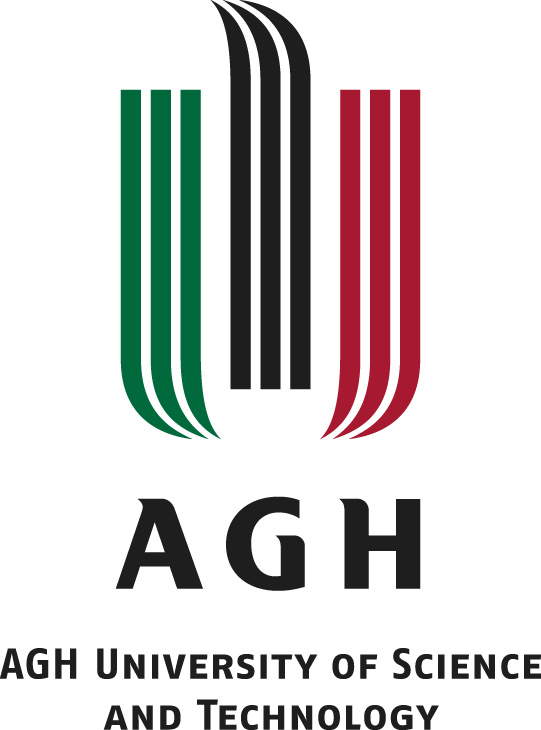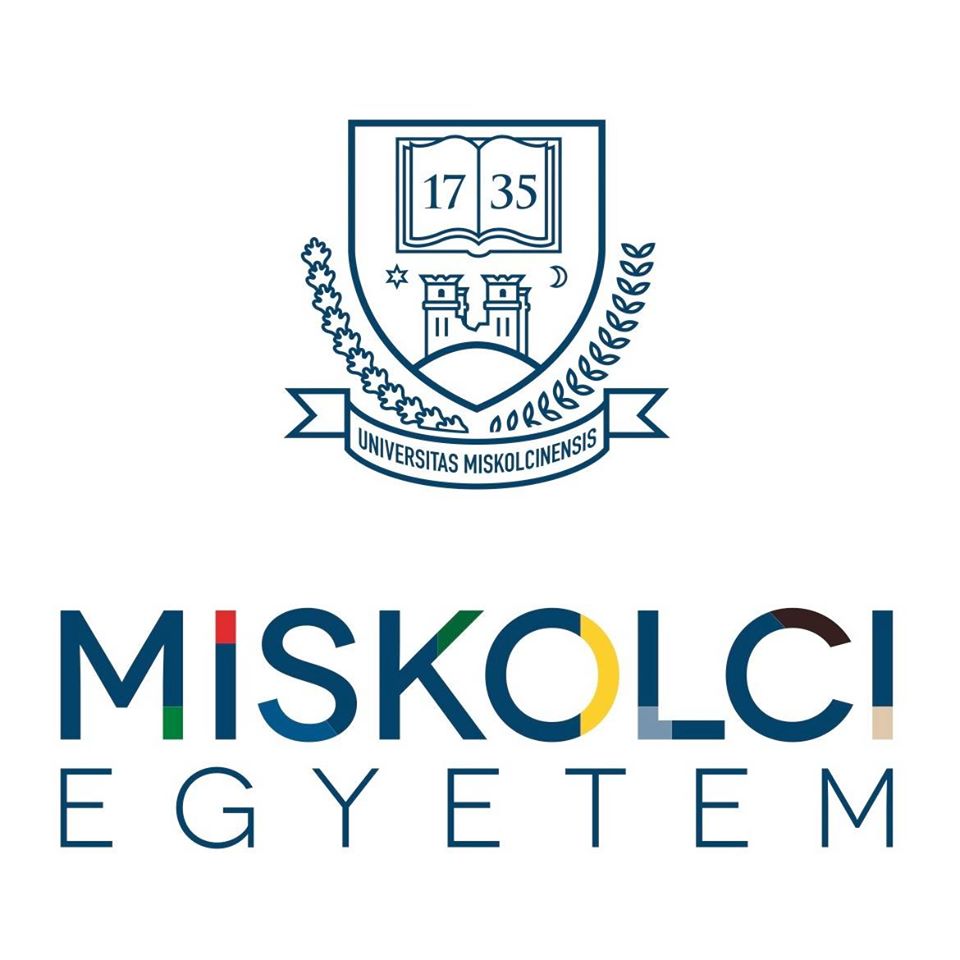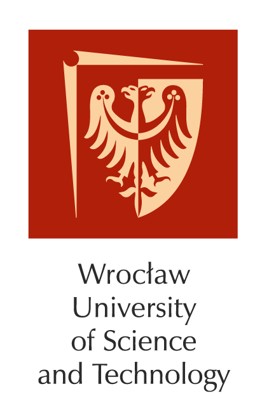- Mining engineering MSc: The aim of the program is to broad knowledge and improve skills from the field of mining Engineering. At the core of mining Engineering are the issues of earth sciences, geology, but also modern physics, mechanics – the impact of mining works on the surface, geomechanics, surveying, deposit geology, mining machinery exploitation, deposit mining technology of various raw materials, shooting technology, drainage, stacking, liquidation mines as well as economics and modern methods of managing a mining enterprise, including safety in such a unique work environment.
Faculty graduates can work as:
– Engineering staff in underground,
– Opencast and borehole mining plants,
– Engineering staff in specialized mining companies dealing with the use of blasting techniques,
processing and enrichment of minerals, underground products and Engineering facilities,
ventilation, air conditioning and methane drainage,
– Consultants in companies dealing in the sale of mining machinery, equipment and technologies.
Moreover graduates can find a job in the workplaces such like:
– Underground, opencast and borehole mining plants,
– Enterprises dealing in underground mining excavations,
– Engineering structures and services for the needs of mining,
– Mining geophysical stations and mechanical processing and enrichment plants,
– Design offices, scientific institutions, research and R&D units,
– Mine rescue stations,
– Geological and geotechnical construction companies,
– Mining supervision authorities.
- Economic geology MSc: The graduates have a broad knowledge on prospecting, documenting and evaluating of mineral deposits. They are able to plan and perform an exploration program depending on genetic type of deposit and searched elements as well as controlling process of excavation of ore horizon. Knowledge acquired during studies allows to choose optimal field and laboratory assay methods necessary for both prospecting and documentation reports. Our graduates know how to perform a field works and are familiar with methodology of different sampling methods. Theory knowledge is not all. During studies, graduates take part in obligatory field works and diploma field works. Place of diploma field works depends on the thesis (in last few years, graduates had diploma field works in Poland, Ukraine, Kosovo, Slovakia, Australia, Laos and Mongolia).
The Economic Geology graduates know how to evaluate collected samples under the microscope, choose samples for further chemical assay and evaluate results, described drill core (logging) and evaluate mineral deposits including, and calculate resources and reserves based on 3-4D model of deposit. Knowledge acquired in Economic Geology studies allows our graduates to use the newest software to present all sort of data as maps, diagrams, profiles, controlling validation of extracted mineral commodities and cooperate with miners fulfilling geological service. They are also familiar with software for mineral deposit modelling, reserve calculation and open-cut and underground mining management.
The graduates have a broad knowledge on prospecting, documenting and evaluating of mineral deposits. They are able to plan and perform an exploration program depending on genetic type of deposit and searched elements as well as controlling process of excavation of ore horizon. Knowledge acquired during studies allows to choose optimal field and laboratory assay methods necessary for both prospecting and documentation reports. Our graduates know how to perform a field works and are familiar with methodology of different sampling methods. All that knowledge and abilities allows to find a job in mineral exploration and mining industry as well as in research institutions, state and local government administration institutions.
- Applied geophysics MSc: The student of the geophysical specialization “Applied geophysics” is a specialist in the field of broadly understood applied geophysics. He/her has knowledge of the use of geophysical methods in geology, mining, mineral exploration, geotechnics, environmental engineering and protection, subsurface and surface construction, archeology and related fields. He/her is able to use the latest geophysical techniques and software to process and interpret the results of laboratory and field tests. The student acquires expanded knowledge in the field of specialist subjects to a degree preparing for independent design and documentation of geophysical work; s prepared to design, conduct and interpret the results of both surface, underground and borehole geophysical surveys. Has the ability to comprehensively interpret geophysical surveys based on geological, mining, geomechanical, geotechnical knowledge, etc. Learns the economic aspects of applying geophysical methods and how to raise funds for their implementation.
Applied geophysics covers a broad range of the Earth sciences and offers a variety of options. Our graduates might find job in different branches of geophysics, e.g.: prospecting and production geophysics, engineering geophysics, environmental geophysics, well logging and work as: acquisition geophysicists, petroleum geophysicists, mining geophysicists, environmental geophysicists, petrophysicists and seismologists.
After graduation, the graduate may continue education at postgraduate studies or at doctoral
school.
- Earth Science Engineering MSc: The aim of the programme is to train geologists and geophysical engineers who have the knowledge of geology, geophysics and geoinformatics and skills necessary for the prospecting and exploration of geological structures and mineral resources, the assessment of mineral resources and reserves, conduct environmental geological surveys and delineate environmental pollution. Geological and geophysical engineers from this programme can plan, manage and operate these tasks, as well as develop new methods. Fundamentals of physical, mathematical and economic knowledge is also included in the training to create the background for a problem-oriented engineering approach. Having acquired a high level of practical as well as theoretical knowledge, the graduates are suitable to perform and manage prospecting and exploration tasks in the field, as well as to become involved in scientific research.
The programme has been running alternately in Hungarian and English since 2014. Students trained in Hungarian are also encouraged to learn and use the English professional language. Foreign students with scholarships also participate in English cohort. A significant number of students have internship and, in several cases, diploma assignments related to foreign companies and projects. The main focus of the programme is on prospecting and exploration of solid mineral raw materials. In parallel with this programme, there is also a Master of Science (MSc) in Petroleum Geoengineering, running in English only, which focuses on the knowledge required in the petroleum industry.
The expected area of utilization of professional qualifications in Hungary is represented by mining and exploration companies, research institutes and specialized authorities that deal with the management, planning and regulation of mineral raw materials. In addition to the knowledge of earth sciences, the strong engineering training makes the students graduating here to be specialized in mineral exploration and exploitation as well as supervision of the applied earth science directions and technologies.
- Environmental Engineering MSc: The programme is aimed to provide advanced knowledge for environmental engineers in ecology, engineering, economics and management, who are able to identify and assess existing or potential environmental hazards, to prevent environmental damage, and reduce their impact, and to manage remediation projects. They should develop and use appropriate technological solutions to prevent environmental pollution. Graduated environmental engineers can continue their studies at Ph.D. level. Environmental engineering MSc in the University of Miskolc is operated at the Faculty of Earth Science and Engineering and it is reflecting in its profile: one of the two specialisations focuses on remediation of contaminants at and in the near-surface environment, while the other one has a waste manegement and recycling character.
Environmental engineers finising the master programme are able to:
– Design and operate waste management systems;
– Plan and carry out tasks related to waste management
– Design and operate disposal landfill facilities, perform their operational tasks, landfill reclamation and monitoring, aftercare processes;
– Examine, explore, assess of contaminated sites, need for remediation and to determine the method of participation in the implementation of the remediation;
– Model hydrodynamic properties and transport of groundwater flow systems;
– Conduct impact assessments, environmental inspection;MSc level environmental engineering qualification requirements are based on the expectations, feedback and experience of working professionals from industry, public authorities and public administration. Feedback from our alumni from different levels (five – year full – time environmental engineer or postgraduate environmental engineer and environmental management expert) was used as well in order to maintain a high level of compliance on the training side practical / professional requirements and future challenges.
The new training aims to train professionals dealing with a significant and dynamically developing field structure. One of the key areas is the waste generation, recovery and the rapidly evolving engineering expertise in the field of its handling and disposal. Among the issues concerning waste management, the perspective of waste recovery and recycling, waste incineration and controlled waste decomposition processes, have important role, which are gaining more and more attention in Hungary.
The other specialisation focuses on technical and technological knowledge related to the protection of groundwater, on hydrogeology, and remediation of contaminated sites. The training will therefore cover the exploration of contaminated sites, the design and technology of remediation, the management, revitalization and aftercare of contaminated sites, and the issue of secondary land use. In the light of the above, environmental engineers will acquire a general knowledge system covering all environmental elements, will be able to perform field measurements (e.g. well tests, simultaneous water level measurements, water quality monitoring results, environmental status surveys, noise and air quality protection measurements, etc.), preliminary planning, execution of measurements, verification and evaluation of results.
Particular emphasis is placed on learning about the most relevant modeling software used in practice, its practical application, and education on solving problems with computers. The students will be able to perform professional work related to environmental protection, get acquainted with the principles of environmental risk analysis methodology, learn hydrodynamic and transport modeling, with which they will be able to study soil and groundwater pollution, the movement of pollution and the effectiveness of remediation. This acquired knowledge covers the full range of knowledge used by the authorities performing the tasks of the authorities and the consultants working in the environmental industry.
- Mining and Geotechnical Engineering MSc: The aim of this program is to train engineers with up-to-date knowledge in natural sciences, engineering, economics and management, building on their bachelor level studies. In addition, to produce graduates who are capable of identyfing and handling geological, geotechnical engineering, technical and economic challenges, as well as risk remediation, in surface and underground mining activities, special near-surface earthworks, and the construction of mining-related underground areas and tunnels.
Engineers will be able to:
– Carry out tasks in the areas of production;
– Management;
– Planning;
– Consulting;
– Acting in the capacity of authorities, with appropriate specialist knowledge.Within narrower areas of specialization, they will be able to carry out research and development within international projects. Through their studies they will develop the creative and research skills needed to participate in doctoral studies.
Specialisations: Mining and geotechnology; Raw materials preparation; Natural sciences; Exploitation of a mine; Mining mechanics; Raw materials preparation processes; Process engineering systems; Special question of mining; Geotechnics, rock mechanics, blasting; Finishing operations of mining; Economic and human knowledge.
- Mining Engineering MSc: The economic development of European economies depends on natural resources, abilities to use them and required adequate technical staff. The assumed educational effects meet economy practice needs in the field of mineral resources management, technologies and techniques of their exploration and prospecting, mining, processing, industrial land reclamation and development, and enterprises (especially mines) management supported by information, environment, and people management with the use of state-of-the-art information and marketing techniques and technologies. Such the integration of economy needs and assumed educational effects makes the labour market favourable for the Faculty graduates.
A graduate will possess abilities to use in depth knowledge of problems within the domain of basic sciences, main-field-of-study and specialization subjects. The graduate will be able to manage and supervise teams, deal with high-risk situations and decisions, and use competently the knowledge of law and economics. The graduate will be prepared to design technological processes, carry out research work and work creatively.
The Mining Engineering graduate will be prepared to work for enterprises, engineering supervision bodies, state administration, design offices and research units, where in depth specialised knowledge of mining, geology and geoengineering is demanded.
- Geotechnical and Environmental Engineering MSc: Wroclaw Technical University and University of Miskolc have developed their cooperation establishing the ESEEGEC – Geotechnical and Environmental Engineering MSc program. The cooperation is a structured student mobility program, based and continuing the partnership within the frame of the EGEC program between 2003 and 2017.
The European Geotechnical and Environmental Course – EGEC was established in 2003 within the frame of the FEMP education programs. TU Wroclaw and the University of Miskolc had participated in the EGEC since its first year. Public acceptance of the mining industry is globally low due to bad environmental legacies in the past. From the 1990s the amount of annually produced mining waste had strongly increased.
Proper management of mining waste needed specialists trained in environmental and geotechnical issues of the mining industry. On the other side, computer-aided modelling of deposits and mining processes, more intensive need to utilize the underground space opened the demand for specialists strong in geotechnics and rock mechanics. Environmental and geotechnical issues for the European extractive industry remain actual, especially for the Eastern and South Eastern European (ESEE) region.
On the other hand, legacy of the extensive ore mining activities in the past needs site remediation and safety measures all over the ESEE countries, especially in Romania and Bulgaria. Moreover, remediation and environmental safety development projects have been started in the FSU countries.
We believe the ESEEGEC program can contribute to develop the human resource capacity to solve the above listed issues, primarily in the ESEE region. Having the experience from the EGEC partnership, the ESEEGEC in its current structure is a pioneer example for such a regional networking which is encouraged by the EIT-RM.
- Geomatics for Mineral Resource Management MSc: Geomatics for Mineral Resource Management focuses on the process of resource modelling and mine management. Students will be taught in a variety of subjects related to the field mining and mineral resources. This includes financial, environmental, political as well as the legal aspects of national and international mining projects. In addition to the standard courses taught by staff from partner universities and industry experts, massive open online courses (MOOC’s) are offered for the students. The MOOC’s consist of a series of web-videos, which cover the content of an individual course.
The educational content focuses on the following pillars: (1) Sensing technologies for mine data gathering, (2) Spatial (big) data management and visualization and (3) Spatial (big) data analysis and modelling. The aim of the programme is to enable students to integrate these three pillars into innovative Geomonitoring concepts. Students, who decide on the specialisation Geomatics for Mineral Resource Management, are, on default, set to study 2 semesters at Wrocław University of Science and Technology (1st and 4th semesters) and 2 semesters at TU Bergakademie Freiberg in Germany (2nd and 3rd semesters) and TU Bergakademie Freiberg in Germany (2nd and 3rd semester) and are going to graduate with a double MSc diploma. Thus graduate of this master program will be prepared to work in an international and multicultural environment in mining and exploration companies, technical supervision authorities, public administration offices, research and development institutions, everywhere advanced and state of the art interdisciplinary knowledge spanning mining and geology, computer aided design, and geomatics.
Thus graduate of this master program will be prepared to work in an international and multicultural environment in mining and exploration companies, technical supervision authorities, public administration offices, research and development institutions, everywhere where advanced and state of the art interdis¬ciplinary knowledge of mining and geology, computer aided design, geomatics are required.
- Mining Engineering:
- Mobility Pathway 1: Specialization in Mining Engineering
- Mobility Pathway 2: Specialization in Geotechnical Engineering
The aim of the programme is to educate students for all tasks related to the research of soil and rock mass properties, planning, carrying out and monitoring excavation during the exploitation of mineral resources or construction of infrastructure facilities, and during the exploration and exploitation of mineral resources. This study programme expands fundamental knowledge in the area of technical and natural sciences and qualifies students to apply that knowledge developing their ability of original elaboration and/or application of ideas in solving new or unknown situations in the profession and in the wider interdisciplinary context. The study programme relies to a great extent on laboratory work, fieldwork and summer training.
- Graduate study programme in Geology – Geology of Mineral Resources and Geophysical Explorations subprogramme: The aim of the training is to train geology engineers who will upon completion should have gained the professionalism and competency for performing tasks as a part of the reached level of qualification, that is, for applying the gained knowledge in the expert and professional manner, with the ability of solving simple and complicated problems in the geological profession, especially in the field of Geology of Mineral Resources and Geophysical Exploration, but also in an interdisciplinary context. The graduate should also be professional and competent in finding and assessing mineral and energetic raw materials, preparing reports, studies and projects about mineral and energetic raw materials, in assessing the characteristics of the mineral and energetic raw materials and their behaviour in the industrial processes, and in assessing conceptual volume and in interpreting the geological, geophysical and geochemical data. The student’s attained education should be a good foundation for fundamental and applied occupational research and a basic starting point for further scientificresearch development. They are prepared to continue their studies in doctoral training.














